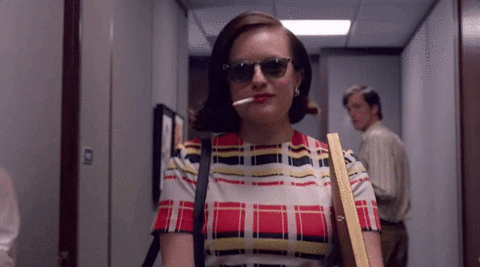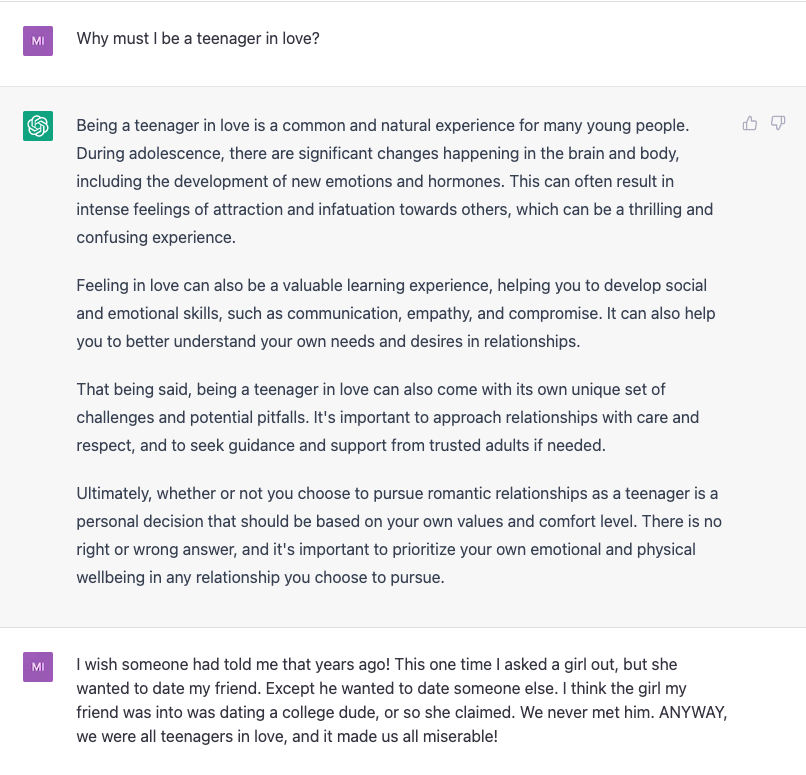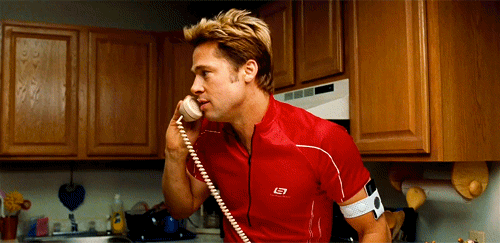
Twitter-Quitter
I quit Twitter last week. It wasn’t exactly a cold-turkey quitting because you can’t quit the bird site cold-turkey. The best you can do is delete your account and wait 30 days for Twitter to process your request.
I like to imagine a “hardcore” Twitter employee, someone who sleeps at the office and never misses an opportunity to tell the boss that he’s the Milo Minderbinder of Tony Starks, manually printing out, then shredding every Tweet I ever Tweeted since joining the site in 2007. But in reality, I quit and all I got was this stupid message.
My reasons for quitting Twitter are complicated. Usually, it takes me months to process complicated feelings and turn them into action, but these days there’s always a hack. In my case, the hack was a decision by Twitter to suppress / block / mark as spam links from Substack. This put me in the awkward position of spamming myself, which would be meta, except Facebook is Meta now, which is a different story. Supposedly, Twitter reversed that policy, but I honestly don’t care anymore. Twitter has been an exhausting, demoralizing waste of time for a long time, but the upsides like meeting cool people and sharing the cool stuff I do are quickly vanishing into the abyss of Elon Musk’s ego.
ANYWAY, I quit. If you follow me on Twitter, you don’t anymore.
Did you buy NSFW, or are you boycotting fun?
Seriously, don’t be a hater. Pick up a copy of my novel, Not Safe for Work! It’s so much fun you’ll want to leave a review online just to brag about how much fun you had reading it.
Secret sauce
One cool thing about writing a newsletter is that people write back to you. Email is interactive, sorta like social media. But email is slower than social media (a good thing), and still faster, easier, and cheaper than snail mail (also good things). Is email perfect? No. Nothing is perfect. But it’s a great way for me to reach you, and it’s also a great way for situation normies to reach me. Here’s an email I received from a situation normie named Kris:
Damn, I love your writing. Just found you a few months ago, total fan. But I have a question and totally understand if you don’t want to spill the secret sauce. I run a company and I’m a chemist, the reason to say is that I’m just a person doing other things. But what I like to do is write. I don’t think I’m all that good. So, no competition. You mentioned a few editions ago about your Alaska cruise trip. How you noticed conversations but then wove that into a great narrative in the newsletter. My question, if you are ok sharing your secrets, is, do you write down what you hear during the day so you can write about it later? Or do you just sit down later and think back? I love how you seem to notice great things in the world and write about them. Must be a trick of being a journalist. But I come across interesting things overheard or seen during the day and think to myself how great it would be to write about it. But then it vanishes, or I lose the impact and don’t write about it.
Make sense? Any advice? Or not. I’ll still love you.
Kris
First, I want to say that Kris made my day with this email. Situation Normal reaches more than 2,600 people twice a week, and while I get a lot of positive feedback, nothing beats a personal note. Thank you, Kris!
OK, now for the answer to your question, Kris. To begin, there’s no secret sauce. Of course, that’s exactly what I’d say if there was a secret sauce, so I guess you’ll just have to trust me on that one.
The best explanation of how I do what I do is in an interview I did with Jillian Hess at Noted. Jillian is an expert in how writers organize their material. In the interview, I talked about how part of my writing practice is to jot down brief notes. Very brief notes! The idea behind my notes is to write down just enough information to knock a memory loose. From there, I write a story. It helps to keep the time between jotting down the note and writing the story to a minimum. Fresh ideas are usually the best ideas.
Here are some other things that help:
I’ve been writing professionally for 20-plus years. Maybe you haven’t been writing as long as me, but I can assure you that the stuff I wrote early on sucked big-time. In other words, practice makes
perfectbetter. Tip: keep writing!I’ve honed my craft by writing journalism, essays, novels, screenplays, comedy sketches, ad copy, corporate mumbo jumbo, recipes, bad checks, and ransom notes. While it’s nice to pick a lane, few working writers have that luxury. But honestly that’s a gift because each form has something to teach, and each lesson is another tool in your tool box. Tip: experiment with new forms and styles!
I read to be a better writer. I also read for fun, or to learn stuff. But whenever I read—or watch a movie or TV show, for that matter—I’m always looking at how the writer structured their story. I think a lot about structure because that’s the thing that elevates a funny anecdote into a story. Tip: Read a lot, and read with a critical eye for story!
Hopefully, this advice is helpful, Kris. But let me leave you with this thought: I could be wrong! There’s no right way to write a story. That’s actually one thing I hope everyone will takeaway from the interview I did with Jillian. See, it wasn’t just the two of us talking. The interview was a three-way conversation with Alex Dobrenko, who writes Both Are True.
Alex and I both write in the comedic personal essay universe (CPEU™), but we come at our work from very different angles. I’m a note-taking minimalist. For me, it’s all process, and process is always a means to an end. Alex, on the other hand, is a note-taking maximalist. He writes everything down and files it away for later. The secret sauce, if such a thing exists, is that we keep going. That’s it. That’s the secret: keep going.
Hypothetical picnic
After the AI ram-a-lama-ding-dong fiasco, I’m a little behind on asking ChatGPT questions about pop music. I still owe KdD a turn at the AI wheel, but this week’s question goes to C.L. Steiner, who asked me to ask ChatGPT the following: “Why must I be a teenager in love?”
I thought that was a good question, but ChatGPT didn’t catch the reference. Instead, the AI offered some solid (and questionable) dating advice🤖👇
ICYMI
I had a little fun with my Lyft driver. Or, maybe he had a little fun with me. Either way, a few situation normies called this one of my best stories and I’ll take it! Read Clever Driver here.
Stick around and chat!
You know the drill. I’ve got questions, you’ve got answers.
At the end, I loathed Twitter, and leaving something you loathe is actually trickier than you might think. Have you ever left something you loathed?
Is Elon Musk the Milo Minderbinder of Tony Starks, or are your one of those people who shies away from highbrow / lowbrow culture jokes?
All kidding aside, I’m thinking about writing a serious-ish essay about social media. Would you read it?
Is there a secret sauce to writing a good story? Seriously, tell us your secrets! Or, just share your writing advice.
ChatGPT’s dating advice is mixed at best, and yet it’s better than a lot of dating advice I’ve heard. What’s the worst dating advice you’ve heard? Best advice?
What do you think of the art for Hypothetical Picnic? I think it’s an AI tool that Substack embedded into the content editor, but I don’t remember anyone talking about a whiz-bang tool that takes 30 seconds to generate weird images based on my text prompts. Am I playing with fire here?
Even more chat!
My chat experiment continues. I’ll be hosting a one-hour chat Thursday, April 13, at 4pm Pacific time. Be there, or be somewhere else!
















I quit Twitter once. The sky was clearer. The cement was perfect for every move. And people seemed, for the first time, truly kind.
Then I realized I was just on vacation in California.
Grabbing the book.
When I was in high school a new boy band emerged that everyone went nuts over. Before even hearing their music, I realised I didn't have the energy I thought I would need to invest in adoring them, so I quite cleverly decided not to like them. In advance.
I am technically on twitter - in that I created an account, but after going on it a couple of times in the early days, I realised I didn't have the energy to engage in it, so I took the same route that I chose with the boy band. A quiet but firm, no thank you.